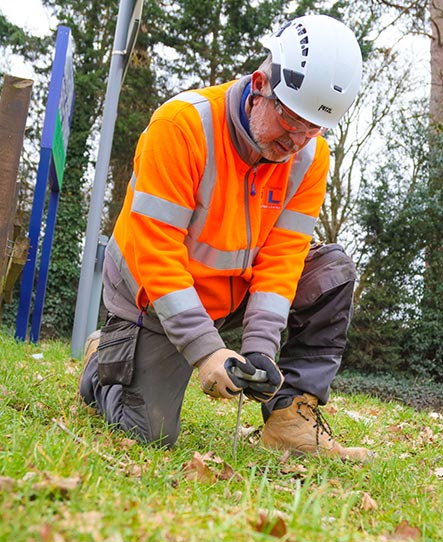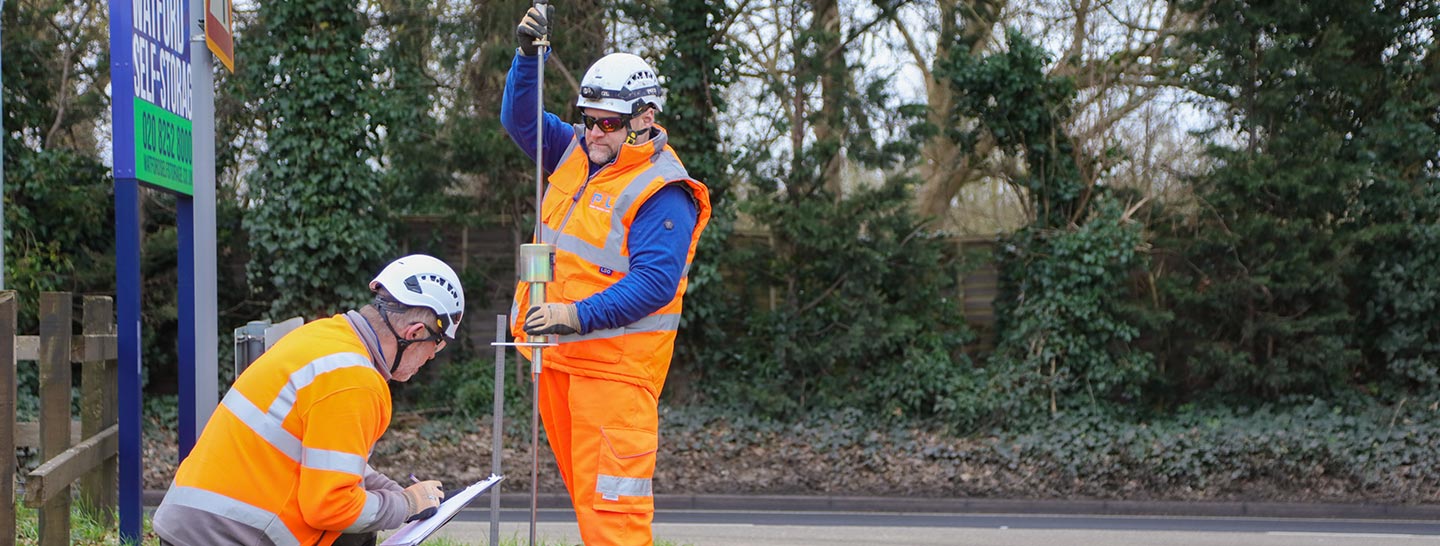20+ years of experience in construction materials testing
Strong and reliable constructions depend upon the suitability of the ground being built upon. Getting that ground geotechnically tested to make sure it’s fit for purpose, therefore, is just good common sense. Working for one of the most reputable engineering organisations of its type, our construction materials testing specialists use cutting-edge techniques and equipment to assess your sites in situ, allowing your team to build with confidence.
With over 20 years’ experience providing in situ construction materials testing services, we’ve worked on some of the UK’s highest profile engineering projects. Many of our tests can be performed without the need for downtime, keeping projects on track and on budget. What’s more, reports for many of our tests can be issued immediately, considerably reducing waiting times for project critical data.
Get in touch.
The best way to contact us about In-Situ Construction Materials Testing is directly through our website. Just leave us your details and a quick overview of what you need, and we’ll get back to you as soon as possible.










